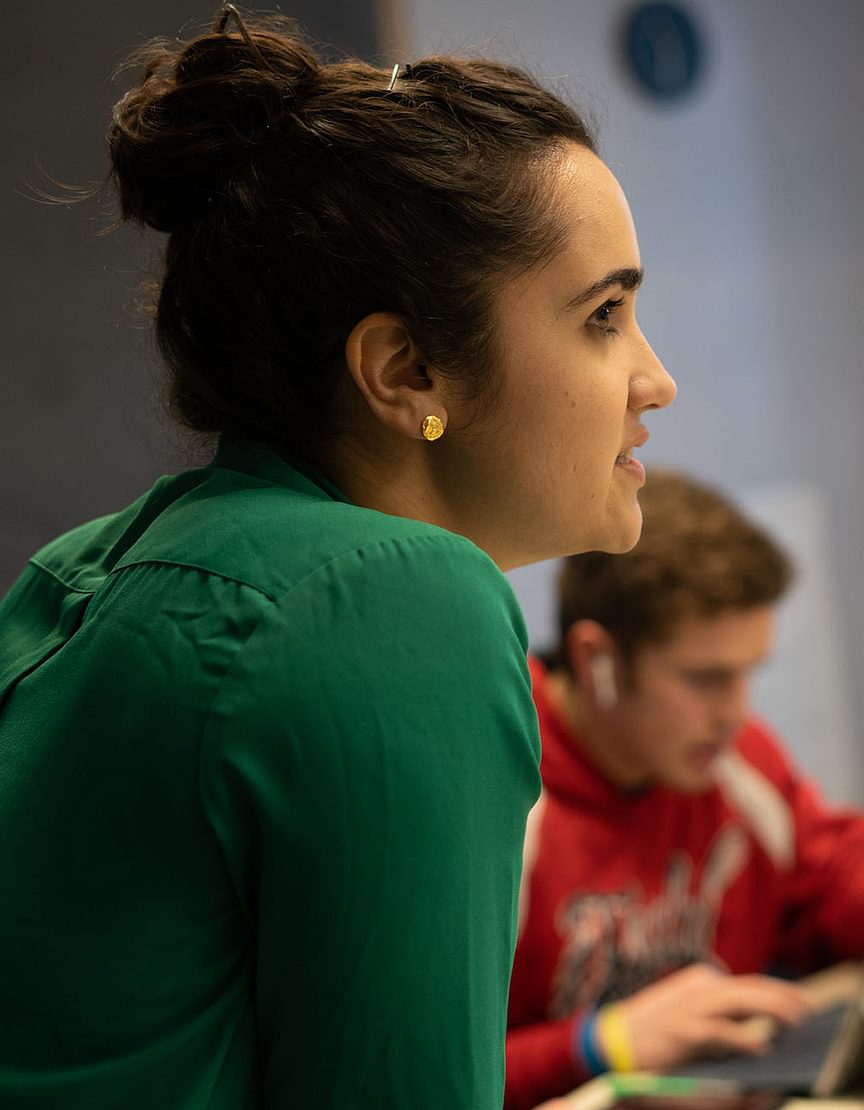
May 28, 2020
Coding with a Conscience
How Andover is presenting technology through a new lensThe traditional and the topical often compete in the classroom. How do you infuse time-honored inquiries with an urgent relevance? Ethics and Technology is one of several new courses spurring these connections. The interdisciplinary elective seeks to instill a moral compass in the next generation of coders and consumers of technology.
“Our students will be faced with a range of ethical decisions,” says Dr. Kiran Bhardwaj, instructor in philosophy and religious studies. “We want to be sure they think through the implications of their choices and actions.”
Many of Bhardwaj’s students are surprised to discover the inherent bias in present-day technologies, such as facial recognition, recidivism prediction, and loan automation. “For example, it’s illegal to ask for someone’s race on a loan application,” says Bhardwaj, “but zip codes are highly correlated with specific neighborhoods and thus race. This is the kind of invisible bias students are being trained to recognize and address.”
I see more clearly the nuances of technology’s social and ethical implications. It’s definitely been eye opening.
”Guest faculty member Dr. Nicholas Zufelt, instructor in mathematics, statistics, and computer science, provides the class with real-life context for the negative human impact of seemingly benign data decisions. Such impact can be expansive and includes racial profiling and unjust incarceration.
“The raw data at the foundation of machine-learning systems is often highly biased due to conscious and unconscious human choices,” says Zufelt. “Students learn that, should they pursue careers in technology, they will have responsibility for the systems they help create. Their daily decisions will ultimately help or hurt various groups.”
As Tang Institute fellows, Bhardwaj and Zufelt are copiloting the Ethi{CS} project. Its goal is to develop ways to embed ethical deliberation into Andover’s existing STEM curricula, beginning with Zufelt’s Project-Based Computer Science elective. Their research and methodologies will be shared widely with other secondary schools.
Originally printed in The Vista: Views from the Knowledge & Goodness Campaign, spring 2020.
Categories: Philanthropy
Other Stories
Andover’s vision for creating a pipeline of rising leaders.

Computer science instructor Nick Zufelt and AI expert Chris Meserole ’98 discuss ways tech will enhance education



